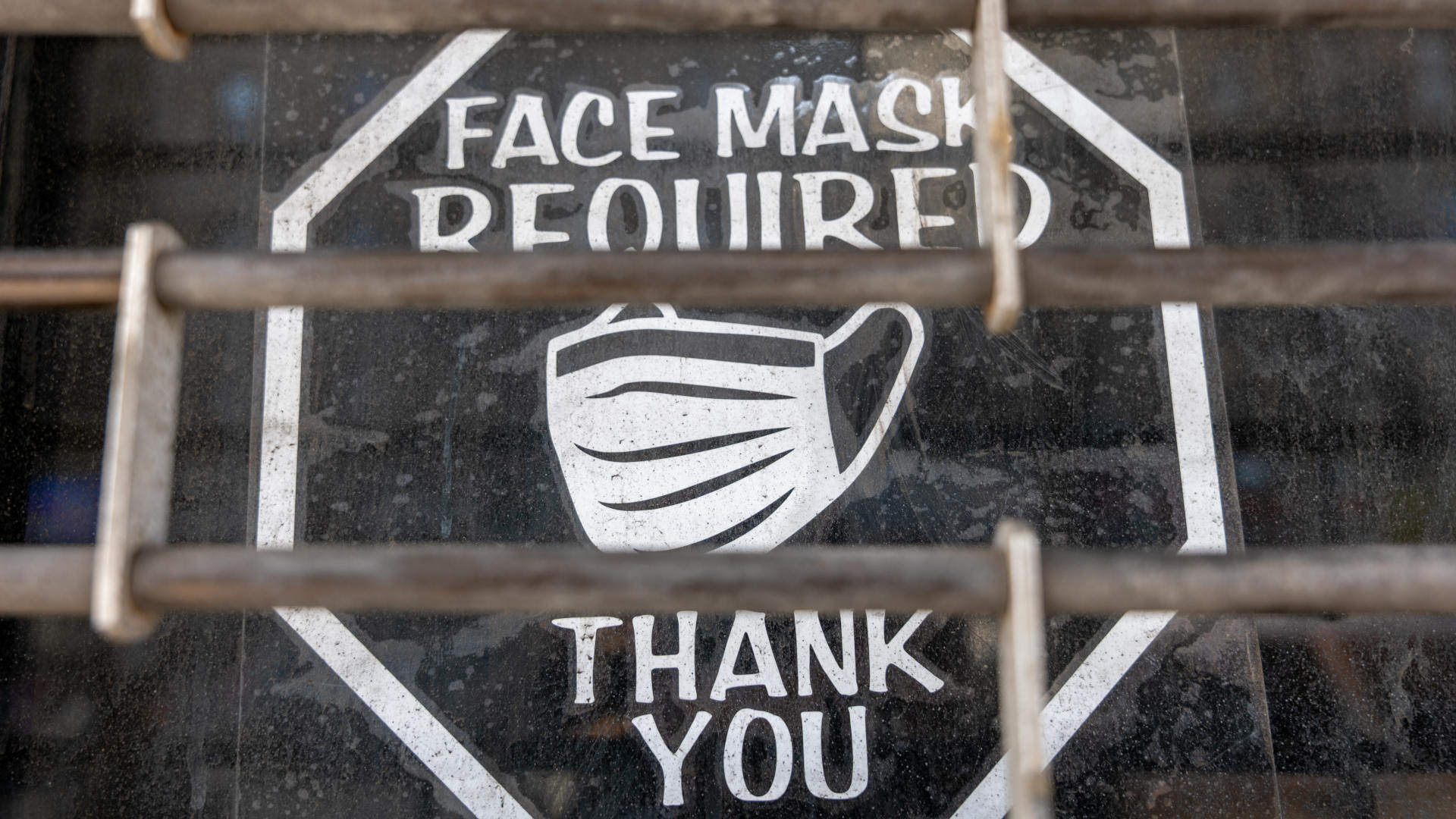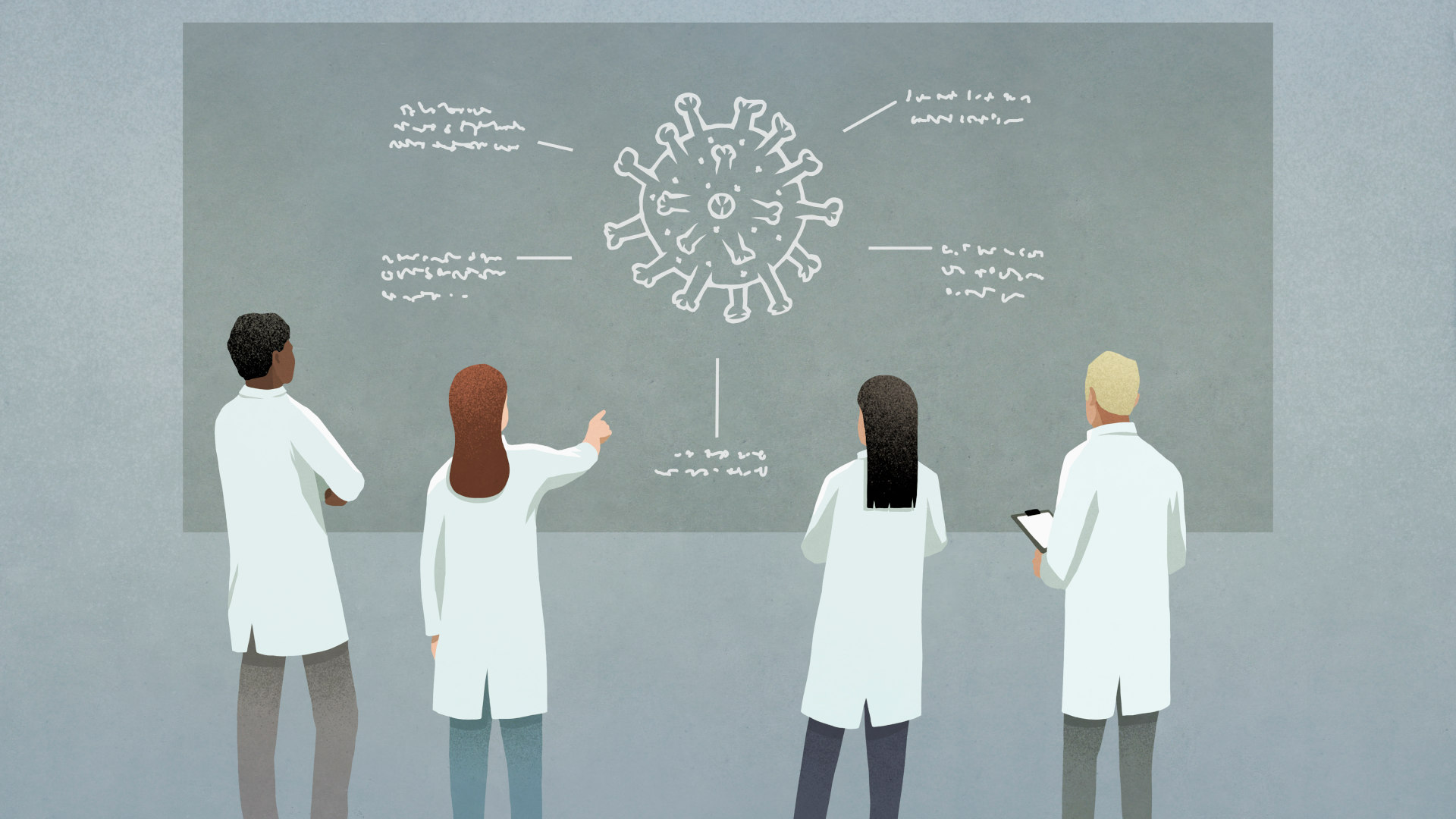The first day of my undergraduate course on evolutionary medicine comes with a new disclaimer, presented just after we’ve surveyed the syllabus and discussed my policies on attendance, accommodations, and other fine print: We will not spend a significant amount of time talking about Covid-19. This is a response to an observation supported by my interactions with people from many walks of life: We all suffer from a social syndrome that some call “Covid fatigue,” for which any mention of the pandemic crashes our human CPUs, and we immediately lose interest in the conversation. (This social version of Covid fatigue is a play on words, as the term can also describe the clinical consequences of long Covid for individuals.)
While I’ve given in to social Covid fatigue at the classroom level, I have now decided — more than five years after the SARS-CoV-2 virus reached U.S. shores — that we need to muster the energy to reflect on the pandemic and extract a few lasting messages to help us rethink many aspects of science, and the world.

My classroom announcement sounds unnecessary at best and is more likely a bad teaching strategy, because Covid-19 is one of the greatest examples of evolution-in-action in scientific history. But my avoidance of the topic is the product of a selective process of its own, dating back to when I taught microbial evolution in early 2020, the semester when society froze. Even then, before lockdown, I witnessed the glassy-eyed expressions — a mix of fear, confusion, and exhaustion — from students at every mention of the pandemic. And since the fall of 2021, when students mostly returned to in-person instruction, the syndrome has worsened. The students did not — and do not — want to talk about it. And neither do our peers. Nor our family members, book agents, or journal editors. We certainly didn’t forget what happened. But we act like we wish we could.
This response makes sense. It is hard to find someone whose life was not negatively affected by the pandemic. And many of the impacts didn’t involve the virus at all but instead the indirect, yet just as toxic, effects of the pandemic on society. We all witnessed the intersection between the pandemic and American politics, where government officials made claims that were in opposition to many public health experts (treating disease with hydroxychloroquine and ivermectin, for example). This revealed distrust in science, which appeared along with the rise of authoritarian politics around the world.
Lockdown served as a social stress test for many institutions. It affected workforces across sectors and the structure of prison populations, and it negatively impacted children’s educational outcomes. Whatever we feel about the necessity or effectiveness of large-scale social interventions in response to the pandemic, we should all agree that — from a collective quality-of-life perspective — they sucked.
The students did not — and do not — want to talk about it. And neither do our peers. Nor our family members, book agents, or journal editors. We certainly didn’t forget what happened. But we act like we wish we could.
Alongside the devastation associated with the pandemic and the public health response, Covid-19 produced many triumphs for virus research. Starting in early 2020, scientists around the world generated meaningful data and published studies at an astonishing pace. Scientists shared data and formed large collaboration networks across oceans.
On an almost daily basis, we learned about the shape of virus evolution, details of disease ecology, and previously unknown vagaries of human pathophysiology. Twenty years ago, I joked with immunobiologist friends that their field was defined by a laundry list of cytokines (proteins that control inflammation and other processes) and other rote facts. Though that was never really true, I can no longer even use it as humor. Since 2020, we learned new things about sterilizing immunity, immune memory, and other details of viral infections at a stunning level of detail. In just a few years, we discovered a ton. The importance of this cannot be overstated.
And yet, some five years after the first cases appeared in the United States, our collective fatigue has left us struggling to extract meaningful lessons from the ordeal, ones that we could apply both to other infectious disease scenarios and to larger ideas about science and society.
One arena in need of clarity regards our global picture of the rules of infectious disease dynamics. For one, we learned about the underappreciated effects of asymptomatic transmission in crafting the shape of epidemics. When diseases can spread quietly through those who are not ostensibly affected by symptoms, we can easily mis-approximate the size of epidemics, as the number of individuals with symptoms is a poor measure for how many people are infected.
The science of asymptomatic transmission is related to subtleties of the host-pathogen interaction and, in particular, to features that differ from one individual to another. Host heterogeneity has long been both a chief focus and a grand mystery in epidemiology. Why do different people have different experiences with a single disease? The question invokes all of the challenges in resolving complex traits, where many different genes and environments contribute to a phenotype (illness in this case). Could disease be the product of heritable genetic variation? How do demographic features such as age and sex drive this heterogeneity?
Relatedly, the Covid-19 pandemic was a referendum on the institution of disease modeling. Computational epidemiology has been, and forever will be, a critical part of the science of outbreaks. It allows us to make projections, simulate the impact of potential interventions, and directly inform public health decision-making.
But the pandemic also highlighted the challenges with these approaches. Much of this was encapsulated in the story behind a model developed by the Institute for Health Metrics and Evaluation, or IHME. The IHME is a large, well-trained, and highly respected collective that conducts public health research on various issues. Early in 2020, the group generated a mathematical model that described the shape of the Covid-19 pandemic and, most controversially, when it would end. The model made the bold prediction that there was a chance (with uncertainty) that cases would crash to near-zero in the United States by July 2020. Of course, this prediction was incorrect. However, rather than lambasting the IHME or its model, the controversy should serve as an opportunity to revisit the basic question about why and how we model diseases. Past successes and failures can inform brand new computational approaches that tell us something meaningful about disease dynamics.
In addition, we need a family huddle around the science of pandemic interventions, because there are questions about whether the ones we implemented made a big difference in health outcomes at all. Importantly, this is about the real-world effectiveness of the interventions, not whether they were rooted in solid science. (I strongly believe that they were.) As an infectious disease researcher, I struggle to accept the notion that what we did made no difference. But my feelings don’t matter. And neither do yours. We should continue to examine if and why interventions may not have mattered in some settings, and how we can improve them.
Lastly, along with the technical arenas outlined above, the pandemic also taught us that the most revealing lessons may have little to do with the SARS-CoV-2 virus or any details that deal with the basic science of infectious disease.
When delivering formal presentations on the pandemic, I often ask, “What was the bigger threat to society: the RNA virus that was the causative agent for disease, or the broken communication that undermined efforts to deliver responsible messaging to the citizen-science public?” The question is rhetorical, of course, but useful for setting up a discourse about what the problems were.
As an infectious disease researcher, I struggle to accept the notion that what we did made no difference. But my feelings don’t matter. And neither do yours.
Five years on, science skeptics now sit in the highest offices. Misinformation and conspiracy not only live on the YouTube channels of fringe characters but are now offered as legitimate alternatives to data generated by people who dedicate their lives to carefully studying the natural world through the scientific method. We now live in an era that can be safely summarized as the end of science’s peacetime, and perhaps the end of the general eminence of once mighty institutions of higher learning.
Today we should be studying the pandemic at a level that is at least as rigorous as the early days. The reasons why are clear: A recent mpox outbreak, the resurgence of measles, and the risk of an influenza epidemic highlight why we need to coalesce our knowledge of pandemic science. But I am skeptical that we ever will, and I am somewhat sympathetic as to why. With public Covid-19 fatigue, the money has dried up and the glamour journals are rejecting our pandemic-related papers. In light of this, maybe it’s time to pivot to whatever newer topic will get us ahead. The response is unfortunate but makes sense given the incentive structure, whereby research dollars and high-impact manuscripts drive professional progress. What’s more, we are all distracted by political attacks that threaten the existence of the research enterprise. The scientific community either doesn’t know what to do or doesn’t think that doing the right thing is worth the effort. This is a sad reality.
What I have provided hardly qualifies as a synthesis but more as an abridged list of a few messages that may emerge if we stop and reflect. Now is the time for the next generation of Avengers who overcome their Covid-19 fatigue and apply their training to a new paradigm of pandemic science — one that teaches us how pathogens continue to wreak havoc over Homo sapiens and non-human species that we care about. But just as important, this synthesis should explore how scientists can navigate stormy political waters and improve our standing among a public that seems to have stopped caring, maybe understandably, about what we do.











